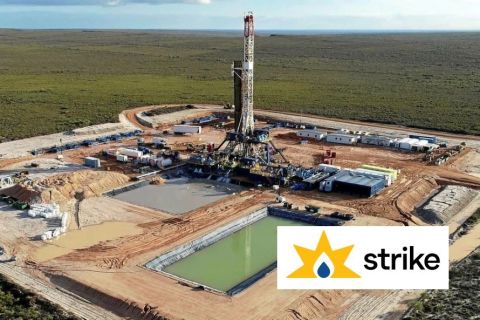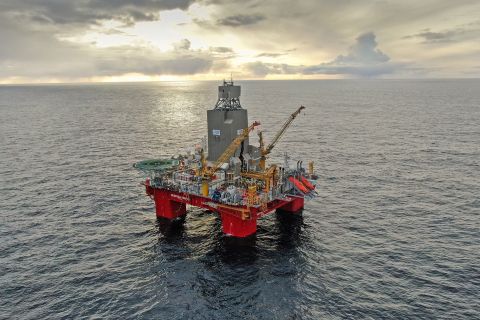The oil and gas industry has a relatively long history of leveraging digitalization, particularly in the upstream sector where digital transformation achieved over the last decade has driven new levels of optimization and efficiency in practically every domain. This digital transformation is largely attributed to significant advances in computing and data analysis capabilities. To fully embrace and leverage the capabilities made possible by digital transformation today and into the future, the industry must continuously improve data management, data quality and secure, rapid access to data for users.
While data volumes are growing significantly and workflows are becoming increasingly complex, most existing data management approaches and solutions lack the performance capabilities needed to support this. Data is hence an underutilized asset, often siloed by domain, with data transfers to improve accessibility often costly and time-consuming. The cloud is helping to overcome these challenges by unlocking and democratizing data, and enabling organizations to leverage cloud-based solutions to develop innovative workflows that transform businesses.

For oil and gas operators, what data they collect and how that data is put to work determines the success of their business. The details of how their data are categorized, described and stored, however, is not differentiating. So rather than attempting to solve this challenge individually, the oil and gas community has come together to address the industry’s data management challenges. Together with Shell Plc, The Open Group, an organization that sets out guidelines for such cross-industry open collaborations, introduced The Open Group OSDU Forum in 2018, and announced the launch of the OSDU Data Platform.
The mission of the OSDU Forum is to develop an open source, standards-based, technology agnostic data platform for the energy industry that stimulates innovation, industrializes data management, and reduces time to market. The aim of the OSDU Data Platform is to remove the barriers to innovation caused by data silos, and to enable the development of transformational workflows. The OSDU Data Platform is being built to accelerate the deployment of emerging digital solutions for better decision making and create an open, standards-based ecosystem that drives innovation across the industry.
The origins of the OSDU Forum date back to late 2017, when Shell teamed with Amazon Web Services (AWS) to create the Subsurface Data Universe (SDU) as an internal project. The cloud-based SDU was part of Shell’s vision to rethink how data is managed and interpreted, how to make better decisions faster, and the value that can be derived from data—all derived from the understanding that data itself could be the differentiator. Later that year, after meeting with other international oil companies, Shell donated SDU code to the OSDU Forum to further contribute to the industry wide open source project—thus the creation of the OSDU Forum, with Shell and AWS amongst the founding members.
Moving data to the center
For subsurface teams, the OSDU Data Platform is helping to remove data silos and enable data to move seamlessly between workflows and applications, provide secure access to data, accelerate deployment of new and innovative solutions, and optimize speed of data analysis to quicken new prospect development with greater certainty.
The earliest releases of the OSDU Data Platform were deployed for testing and troubleshooting, and only for OSDU founding members like AWS and Shell. In March 2021, the Mercury Release of the OSDU Data Platform was introduced, marking the first production-ready release for the industry. Since the announcement of the Mercury Release, many organizations have made progress toward implementing and integrating their own instances of the OSDU Data Platform.
Shell, for example, announced earlier this year that migration of data to its SDU on the cloud was underway, and that data was actively being migrated to the OSDU Data Platform on AWS. So far, Shell has moved wells data to the AWS cloud, which is helping to improve efficiency and shorten cycle times. Shell is also exploring migration of other key seismic processes to the OSDU Data Platform on AWS. By leveraging cloud-based data and workflows so that data is more easily shared, Shell expects to realize four key benefits: better and faster capital investment decisions; asset teams can more easily optimize operational performance of existing fields; delivery of higher ultimate recovery of hydrocarbons by helping find bypassed zones of existing reservoirs; and interpretation teams becoming more efficient and effective as they concentrate on high-value activities rather than mundane aspects like transferring and version-checking of data.

Application interoperability
The OSDU Data Platform delivers a set of data standards and service API’s allowing for application integration, fast and high-fidelity data sharing, and ensures organizations can leverage the best of what the OSDU Data Platform enables, while also continuing to leverage proprietary solutions, innovations and capabilities of their cloud providers.
Eni SpA, for example, recently integrated its XWARE proprietary platform for seismic data with the OSDU Data Platform on AWS. XWARE serves as Eni’s subsurface data platform, and is used for data management and to implement its enterprise data governance. This integration is significant because it highlights that organizations can combine best-in-class proprietary solutions with the OSDU Data Platform, while still taking advantage of the innovation and security best practices provided by the AWS cloud.
Integrating the XWARE data platform with the OSDU Data Platform means Eni can achieve faster data exchanges between external ecosystems, quicker deployment of innovative seismic cloud applications, while also fostering new digital workflows and insights—all of which will help to boost overall efficiency of their geoscience teams. In addition, quick and seamless interoperability between applications in company workflows will enable Eni to deliver projects with less resources while also unlocking data to be used with other innovative digital resources.
A path forward
The OSDU Forum, and the development of the OSDU Data Platform, are driving a collective effort to improve upon the industry’s data management, data quality and security, and data accessibility for users—all of which is needed to leverage the innovations achieved through digital transformation. Adoption of the OSDU Data Platform is progressing across the industry, providing organizations with seamless access to fully integrated subsurface data, while enabling increased operational efficiency and performance optimization.
The AWS implementation of the OSDU Data Platform is helping organizations eliminate data silos and remove barriers to innovation. In addition, organizations are leveraging the cloud-native infrastructure of the OSDU Data Platform on AWS to utilize cloud-based applications like artificial intelligence and machine learning to develop innovative workflows to transform their business.
Further, applications for the OSDU Data Platform are expanding as the value of subsurface data stretches beyond oil and gas production. Organizations like Shell are exploring the potential of leveraging the OSDU Data Platform for applications like geothermal development processes, carbon capture and storage, and hydrogen storage.
Recommended Reading
US Drillers Add Oil, Gas Rigs for First Time in Five Weeks
2024-04-19 - The oil and gas rig count, an early indicator of future output, rose by two to 619 in the week to April 19.
Strike Energy Updates 3D Seismic Acquisition in Perth Basin
2024-04-19 - Strike Energy completed its 3D seismic acquisition of Ocean Hill on schedule and under budget, the company said.
Santos’ Pikka Phase 1 in Alaska to Deliver First Oil by 2026
2024-04-18 - Australia's Santos expects first oil to flow from the 80,000 bbl/d Pikka Phase 1 project in Alaska by 2026, diversifying Santos' portfolio and reducing geographic concentration risk.
Iraq to Seek Bids for Oil, Gas Contracts April 27
2024-04-18 - Iraq will auction 30 new oil and gas projects in two licensing rounds distributed across the country.
Vår Energi Hits Oil with Ringhorne North
2024-04-17 - Vår Energi’s North Sea discovery de-risks drilling prospects in the area and could be tied back to Balder area infrastructure.



